-
 Draper dumped out of Monte Carlo Masters by Davidovich Fokina
Draper dumped out of Monte Carlo Masters by Davidovich Fokina
-
Scheffler, McIlroy seek fast start as 89th Masters tees off

-
 EU halts counter-tariffs but no pause in US-China trade war
EU halts counter-tariffs but no pause in US-China trade war
-
Australian schoolboy Gout Gout runs sub-10 second 100m --- twice

-
 Scarlett Johansson to star at Cannes as festival unveils line-up
Scarlett Johansson to star at Cannes as festival unveils line-up
-
Stock markets soar as Trump delays painful tariffs

-
 Trump tariffs weigh on Germany as institutes cut forecasts
Trump tariffs weigh on Germany as institutes cut forecasts
-
US and Russia exchange prisoners

-
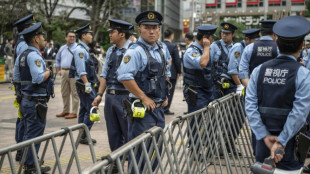 Japan top yakuza group promises 'no more trouble'
Japan top yakuza group promises 'no more trouble'
-
Champion Martin eyes Qatar return as 'bitter' Marc Marquez seeks redemption

-
 The US citizens still held in Russian prisons
The US citizens still held in Russian prisons
-
US-Russian ballet dancer Ksenia Karelina freed by Moscow: Rubio

-
 Not just penguins on Antarctic islands hit by Trump tariffs
Not just penguins on Antarctic islands hit by Trump tariffs
-
Canada PM says Trump's pause on tariffs a 'welcome reprieve'
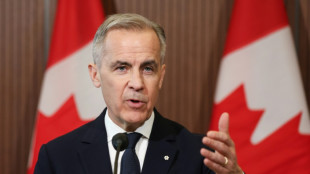
-
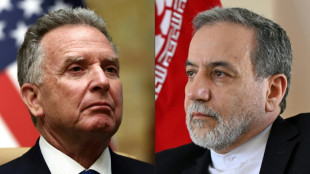 Witkoff and Araghchi: the men leading US-Iran nuclear talks
Witkoff and Araghchi: the men leading US-Iran nuclear talks
-
Stocks zoom higher as Trump delays painful tariffs

-
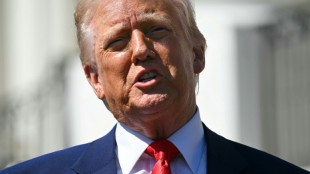 China urges US to meet 'halfway' as markets rocket on Trump tariff pause
China urges US to meet 'halfway' as markets rocket on Trump tariff pause
-
Vatican releases image of Charles, Camilla meeting pope
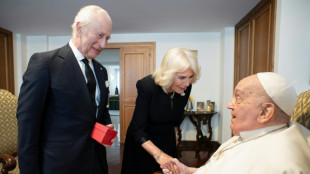
-
 Waratahs' McKellar rules out becoming next Wallabies coach
Waratahs' McKellar rules out becoming next Wallabies coach
-
Taiwan's TSMC says first quarter revenue up 42 percent

-
 Rybakina leads Kazakhstan to BJK Cup victory over Australia
Rybakina leads Kazakhstan to BJK Cup victory over Australia
-
Vietnam says it will start trade talks with United States

-
 Expo 2025 in Japan: five things to know
Expo 2025 in Japan: five things to know
-
Japan's World Expo touts unity, and algae, in turbulent times

-
 Trump's tariff pause gives market relief, but China trade war intensifies
Trump's tariff pause gives market relief, but China trade war intensifies
-
Papua New Guinea lifts ban on forest carbon credits
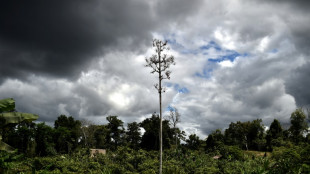
-
 AI surge to double data centre electricity demand by 2030: IEA
AI surge to double data centre electricity demand by 2030: IEA
-
Scheffler, McIlroy seek fast start in hunt for history at Masters

-
 Samsung under pressure as US tariffs rattle South Korean economy
Samsung under pressure as US tariffs rattle South Korean economy
-
Munster wary of 'chaotic' Bordeaux-Begles in Champions Cup quarter-final

-
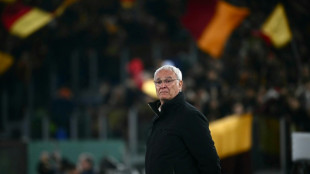 Ranieri eyeing Champions League for Roma before derby swansong
Ranieri eyeing Champions League for Roma before derby swansong
-
Verstappen out to silence McLaren in the battle of Bahrain
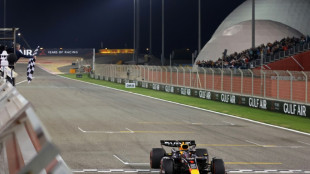
-
 Asian stocks crack higher as Trump delays painful tariffs
Asian stocks crack higher as Trump delays painful tariffs
-
Cannes to unveil film selection under pressure over industry abuse

-
 Messi scores twice in Miami's frantic comeback over LAFC
Messi scores twice in Miami's frantic comeback over LAFC
-
Swimmers get medal boost with new events added for 2028 Olympics

-
 Companies keen to start deep-sea mining off Norway
Companies keen to start deep-sea mining off Norway
-
US House votes to limit judges' injunction power
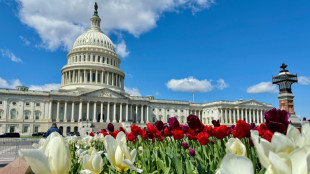
-
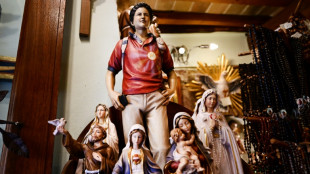 Pilgrims in Italy flock to tomb of first millennial saint
Pilgrims in Italy flock to tomb of first millennial saint
-
China consumer prices slump for second straight month: data

-
 Tearful Doncic scores 45 on return to Dallas as Lakers clinch playoff spot
Tearful Doncic scores 45 on return to Dallas as Lakers clinch playoff spot
-
Hamas leadership operating behind veil of secrecy

-
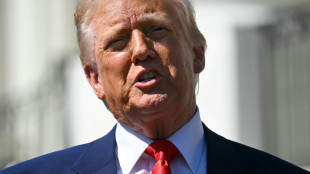 Trump stuns with tariff backtrack but hikes China rate to 125%
Trump stuns with tariff backtrack but hikes China rate to 125%
-
Messi scores twice in Miami's three goal comeback over LAFC

-
 Amazon satellite launch scrubbed due to weather
Amazon satellite launch scrubbed due to weather
-
Art of the deal? How Trump backed down on tariffs
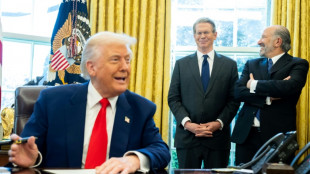
-
 Icotrokinra Results Show 75% of Adolescents with Plaque Psoriasis Achieved Completely Clear Skin and Demonstrate Favorable Safety Profile with a Once Daily Pill
Icotrokinra Results Show 75% of Adolescents with Plaque Psoriasis Achieved Completely Clear Skin and Demonstrate Favorable Safety Profile with a Once Daily Pill
-
Verde(R) Announces New Biobased, Biodegradable PolyEarthylene(R) Film Grades

-
 Berkeley SkyDeck Demo Day to Showcase Unprecedented Momentum in AI
Berkeley SkyDeck Demo Day to Showcase Unprecedented Momentum in AI
-
Classover to Hire 2,500 U.S. Teachers to Power Operations and Curate Proprietary AI Training Dataset

South Korea: Yoon Suk Yeol shocks Nation
South Korea in Crisis: President Yoon Suk Yeol's Coup Shakes the Nation
In a stunning and unprecedented move, South Korean President Yoon Suk Yeol has attempted to seize absolute power, plunging the nation into political chaos. On the night of December 3, President Yoon declared martial law, suspended the National Assembly, and deployed soldiers to surround its premises, effectively paralysing the country’s democratic institutions. The world is watching in shock as one of Asia’s most stable democracies faces an uncertain future.
The Coup: A Nation in Shock
The events unfolded rapidly on a cold December night, leaving South Koreans and the international community reeling. President Yoon cited national security threats and alleged internal dissent as justification for his actions, but critics are calling it a blatant power grab. By suspending the National Assembly—South Korea’s legislative body—Yoon has undermined the very foundation of the nation’s democratic system.
Eyewitnesses reported heavy military presence in the capital, Seoul, as soldiers and armoured vehicles took positions near government buildings. Communication networks were temporarily disrupted, adding to the confusion. The swift and calculated nature of the coup suggests months of planning, raising questions about who within the government and military may have supported the move.
Immediate Reactions: Outrage and Resistance
The coup has sparked widespread outrage among South Koreans. Protesters took to the streets in major cities, waving banners and chanting slogans calling for Yoon’s resignation. Opposition leaders condemned the move as a betrayal of the democratic values South Korea has upheld since its transition from military rule in the 1980s.
International leaders, including the US-President Joe Biden who is still in office until 20 January 2025 and Japanese Prime Minister Fumio Kishida, have expressed grave concern. The United Nations has called for an emergency session to address the situation, while human rights organisations warn of potential crackdowns on dissent.
What Led to This Crisis?
President Yoon’s tenure has been marked by polarising leadership and a growing divide between conservatives and progressives. Critics argue that his administration’s inability to address pressing economic challenges, such as rising housing costs and youth unemployment, eroded public trust. Yoon’s approval ratings had plummeted in recent months, and his administration faced mounting scrutiny over alleged corruption scandals.
While Yoon’s justification for the coup includes vague references to national security threats, experts believe the move was motivated by a desire to cling to power amidst growing opposition. Some speculate that internal disagreements within his party and the prospect of impeachment may have pushed Yoon to take drastic action.
The Role of the Military
The military’s involvement in the coup is particularly troubling for a country with a history of authoritarian rule. South Korea transitioned to a democracy in 1987 after decades of military dictatorship, and the armed forces have since remained apolitical. Yoon’s ability to mobilise the military raises questions about divisions within the armed forces and whether dissenting voices exist among its ranks.
Should significant portions of the military oppose Yoon’s actions, the possibility of a counter-coup or internal conflict could further destabilise the nation.
Implications for South Korea’s Future
The attempted coup casts a shadow over South Korea’s hard-earned reputation as a thriving democracy. Its political stability and economic strength have made it a key player in the global arena, but this crisis threatens to derail decades of progress.
Domestically, the suspension of democratic institutions could lead to widespread unrest, civil disobedience, and a protracted power struggle. Economically, investor confidence is likely to plummet, jeopardising South Korea’s status as a global technology and trade hub.
On the international stage, the coup could strain alliances, particularly with the United States, which has long regarded South Korea as a crucial ally in countering North Korea and maintaining regional stability. China and North Korea, meanwhile, may view the situation as an opportunity to exploit South Korea’s weakened state.
The Road Ahead: Democracy or Dictatorship?
The fate of South Korea now hinges on the response of its citizens, political leaders, and international allies. Opposition parties have called for immediate action to restore democracy, including mass protests and legal challenges. Meanwhile, world leaders face the delicate task of pressuring Yoon’s government while avoiding escalation.
The unfolding crisis serves as a stark reminder that even the most established democracies are not immune to authoritarian tendencies. For South Korea, the road ahead is fraught with uncertainty, but its people have shown resilience before. Whether the nation emerges from this crisis as a stronger democracy or succumbs to authoritarian rule will shape its future—and its place in the world—for generations to come.

Россия: Власть психует и чувствует неуверенность

Военный преступник России Путин не изменит судьбу человечества!

Россия: Военный преступник Владимир Путин на фронте войны

Russian Bastards murder defenceless children in Ukraine

Россия: Военные преступники Путин заберёт на войну всех

Тысячи погибших солдат российского террора опознаны! Свинья Пригожин теперь хочет мира?

Россия: Пропагандисты ликуют: отрезали голову!

Пригожин оправдывается | Лавров умоляет о везите в США

Россия: Здоровье Навального в опасности

Россия: Вагнеровцев не хотят хоронить!

Вам пришла повестка на Госуслугах. Что делать?



